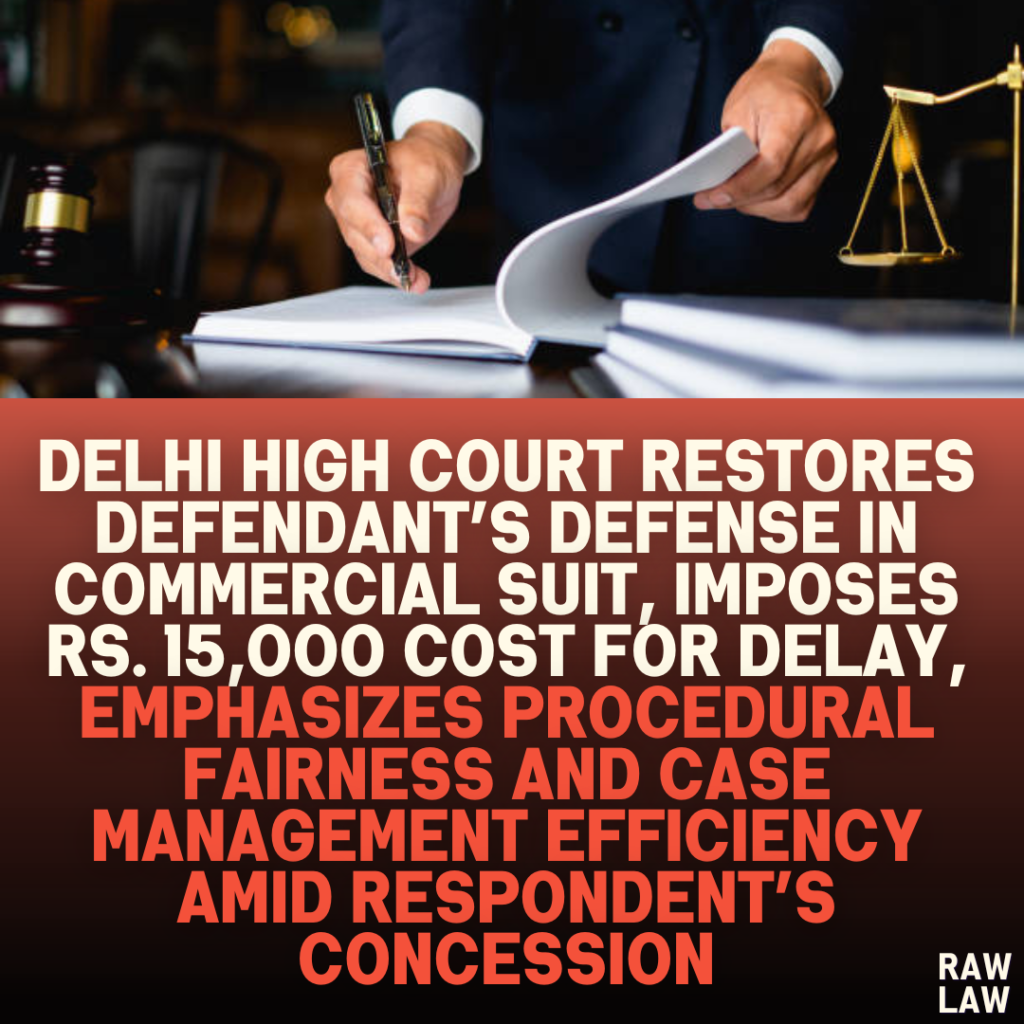Court’s Decision:
The Delhi High Court restored the defense of the petitioner (defendant in the trial court) after it was struck off due to a delay in filing the amended written statement. The Court directed the petitioner to file the amended written statement by October 28, 2024, and imposed a cost of Rs. 15,000 to be paid to the plaintiff for the delay. The Court also canceled the next scheduled hearing and directed that the case proceed according to established procedural law.
Facts:
- The plaintiff initiated a commercial suit on March 22, 2021, seeking recovery against the defendant.
- Summons were issued to the defendant, and a written statement was filed on record by January 27, 2023.
- Subsequently, the plaintiff amended the suit, which necessitated an amended written statement from the defendant.
- The defendant delayed submitting this amended statement, intending to challenge the amendment order, which ultimately led to the trial court striking off its defense.
Issues:
- Whether the defendant’s delay in filing the amended written statement justified striking off its defense.
- Whether the trial court should have accepted the initial written statement in light of the amendment.
Petitioner’s Arguments:
The petitioner argued that despite not filing an amended written statement, the trial court should have retained the previously submitted written statement instead of disregarding it entirely by striking off the defense. The petitioner asserted that this action was unduly harsh given the intent to challenge the amendment order.
Respondent’s Arguments:
The respondent expressed a desire to expedite the suit and indicated no objection to the petition being allowed, provided that terms were imposed on the petitioner to address the delay in the proceedings.
Analysis of the Law:
The Court reviewed procedural law regarding the acceptance and filing of amended pleadings, emphasizing the court’s discretion to impose terms when balancing procedural efficiency with fairness to both parties.
Precedent Analysis:
The Court did not cite specific judgments but relied on general principles of procedural fairness and case management.
Court’s Reasoning:
The Court took a pragmatic approach by acknowledging the petitioner’s delay but recognizing the respondent’s concession to allow the defense to be restored. The Court held that procedural efficiency should be maintained without severely penalizing a party for procedural lapses, particularly where consent from the other party mitigates potential prejudice.
Conclusion:
The High Court ordered the petitioner to submit the amended written statement by October 28, 2024, and imposed a cost of Rs. 15,000 payable by December 18, 2024. The trial court was instructed to proceed with the case, including case management and issue framing, and to treat the defense as restored.
Implications:
The judgment underscores the Court’s flexible stance on procedural deadlines, balancing fairness and efficiency in commercial litigation. It highlights the Court’s willingness to reinstate procedural rights, provided the delayed party is penalized monetarily to compensate for delays, setting a precedent for handling similar procedural lapses in future cases.



